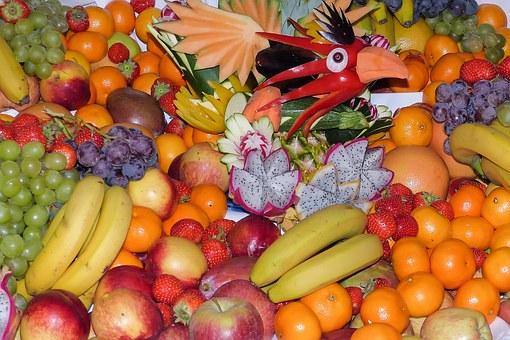
Fruits and Vegetables Shown to Reduce Risk of Breast Cancer
Posted by SoundHealth on Thursday, July, 16 2009 and filed under News
Key topics: Fruit • Vegetables • Breast Cancer

Here is further evidence that eating a diet rich in fruits and vegetables drastically reduces the risk of developing breast cancer, or of preventing a reoccurrence. Scientists from China have just released research findings that add to the growing pile of evidence that eating whole, natural food is an effective way of keeping away this disease.
Study Details
Abstract
The effect of vegetable and fruit consumption on breast cancer risk is controversial. We examined the association between vegetable and fruit intake and breast cancer risk in a hospital-based case-control study conducted in Guangdong, China. Four hundred and thirty-eight cases were frequency matched to 438 controls by age (5-year interval) and residence (rural/urban). Dietary intake was assessed by face-to-face interviews using a validated food frequency questionnaire. Multivariate logistic regression was used to estimate the odds ratios (ORs) and 95% confidence interval (CI) after adjusting for various potential confounders. Total vegetable and fruit intake was found to be inversely associated with breast cancer risk. The ORs of the highest quartile relative to the lowest quartile of total vegetable and fruit intake were 0.28 (95% CI 0.18-0.43) and 0.53 (95% CI 0.34-0.82), respectively. Consumption of individual vegetable and fruit groups such as dark green leafy vegetables, cruciferous vegetables, carrots and tomatoes, banana, watermelon/papaya/cantaloupe were all inversely and significantly related with breast cancer risk. An inverse association was also observed for Vitamin A, carotene, Vitamin C, Vitamin E, and fiber intake. These data indicate that greater intake of vegetables and fruits is associated with a decreased risk of breast cancer among Chinese women residing in Guangdong.
Research paper details:
Zhang CX, et al. Greater vegetable and fruit intake is associated with a lower risk of breast cancer among Chinese women. International journal of cancer. 2009-Jul; vol 125 (issue 1) : pp 181-8.
Basically, this study found that those eating the lowest amounts of fruits and vegetables had a 47 percent increased risk of breast cancer. Consumption of vegetable and fruit groups such as dark green leafy vegetables, cruciferous vegetables, carrots, tomatoes, bananas, watermelon, papaya, and cantaloupe showed a significant reduction related to breast cancer risk. This was also the same for intake of the vitamins A, C, E, carotene, and fiber.
In a previous study, it was found that fruits and vegetables can reduce breast cancer recurrence by 40 percent. The 2005 study examined the relationship between plasma carotenoid concentration as a biomarker of fruit and vegetable intake, and the risk for a new breast cancer event in 1,550 women previously treated for early stage breast cancer. After 5 years of follow-up, those women with the highest plasma carotenoid concentrations had a 40 percent reduced risk for breast cancer recurrence.
Research paper details:
Rock, CL, et al. Plasma carotenoids and Recurrence-Free Survival in Women With a History of breast cancer. Journal of Clinical Oncology, Vol 23, No 27 (September 20), 2005: pp. 6631-6638.
carotenoids are natural fat-soluble pigments found in certain plants, and are responsible for the bright red, orange and yellow in fruits and vegetables. The most well-known carotenoids are: carotene which is found in carrots, spinach, kale and cantaloupe; lycopene which is high in tomatoes, pink grapefruit, watermelon, papaya, and apricots; and lutein, found in dark green leafy vegetables and blueberries.
Summary
Almost all fruits and vegetables contain health-beneficial properties and have anti-cancer activity. Some in particular that have been well researched are cruciferous vegetables (broccoli, cabbage, kale, Brussels sprouts), umbelliferous vegetables (carrots, celery, parsnips, coriander, parsley), tomatoes, peppers, onions and garlic. Other articles on this site give the specific health benefits of each of these fruits and vegetables, and many others. Aim to eat a range of different fruits and vegetables regularly; in fact a large proportion of your diet should consist of fruits and vegetables.
Health, fitness and longevity
Based upon the principles of health
in the Qur'an and Prophetic Traditions.
HealthyMuslim.Com
There are two bounties in which
most people lose out: good health
and free time. Al-Bukhari.